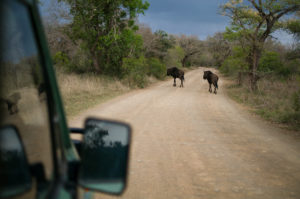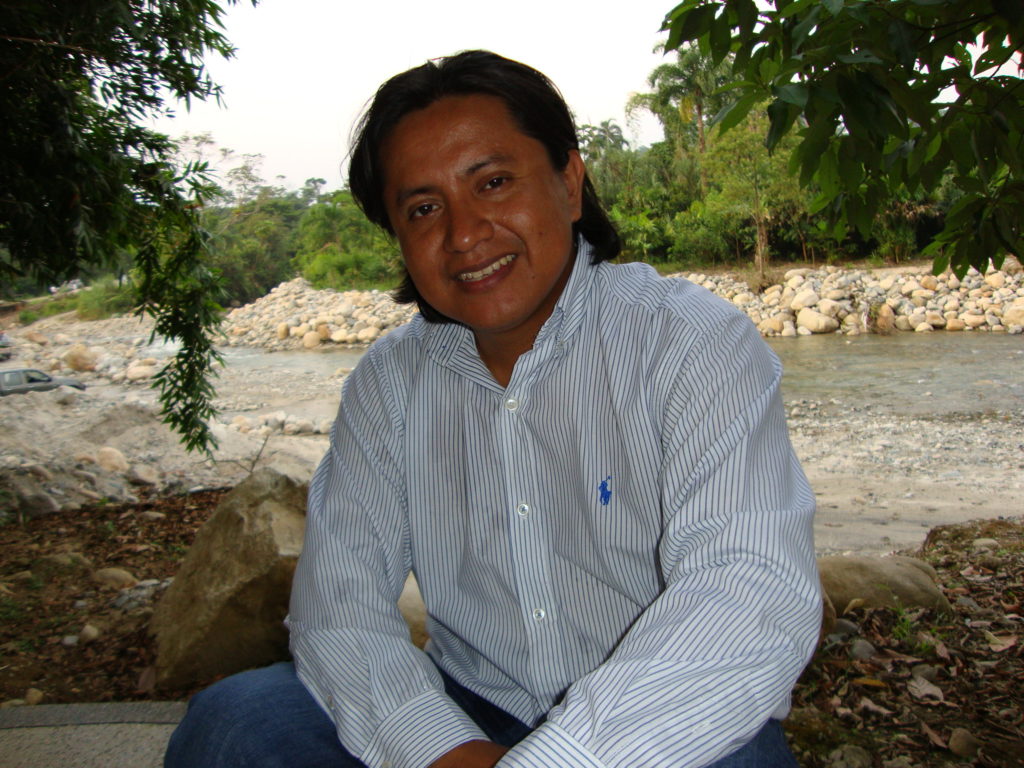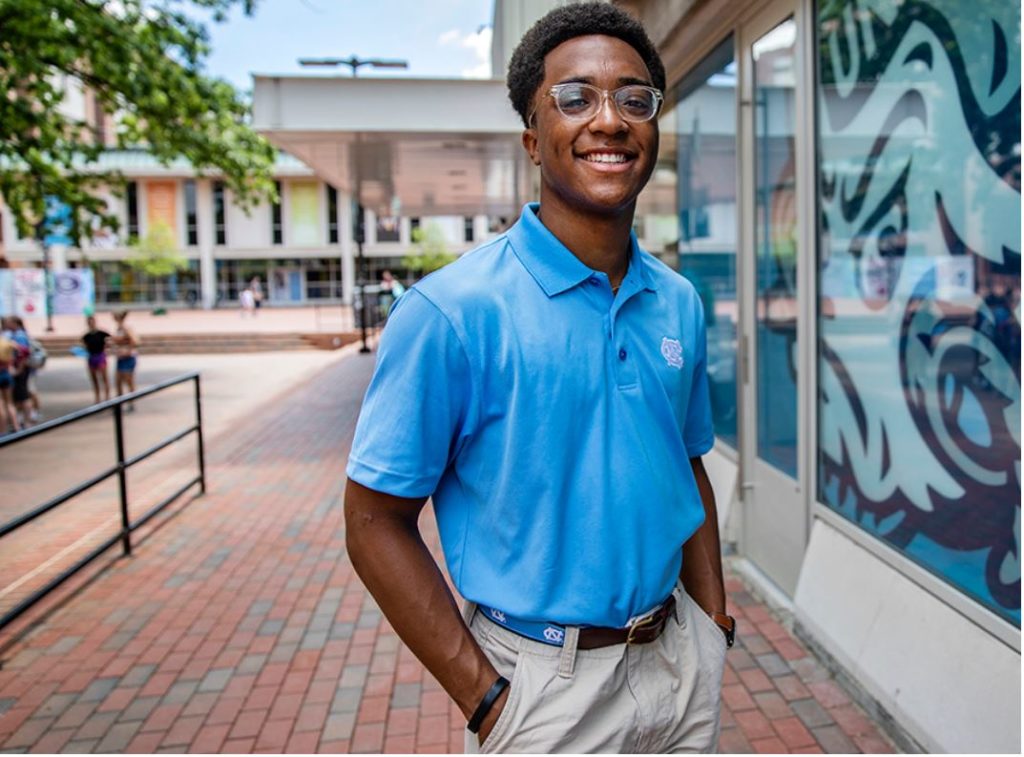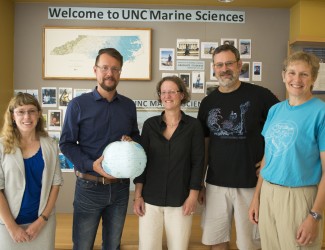
Like many Carolina undergraduates, Allie Van Vliet and Bowen Kelley wanted a unique internship experience in a foreign land. They hoped to work with people affected by real-world problems.
They got that and more at the Cape Town Refugee Centre in South Africa, where they served as interns as part of an unusual study abroad program that attracted a dozen Carolina students last fall.
UNC’s Honors Semester in Cape Town featured opportunities to live, work and learn in an exciting international city, while confronting some of the most complex challenges facing post-apartheid South Africa.
The 2011 program was led by Mike Lambert, UNC professor in the department of African and Afro-American studies and director of the African Studies Center, both in the College of Arts and Sciences. Carolina students worked at local agencies, conducted independent research and took classes based at the University of Cape Town. They studied with Lambert, South African Chris Ahrends, a former chaplain to Desmond Tutu and founding director of the Desmond Tutu Peace Centre, and internship coordinator Julie DeNicola. The semester also offered a course for education majors, taught by UNC education professor Suzanne Gulledge. And there were numerous field trips and excursions, coordinated by local resident Ruth Parker.
On a typical weekday morning at the refugee center last fall, the waiting room was packed with adults and children who had fled violence and persecution in Somalia, Zimbabwe and other conflict-torn homelands across the continent. They were hungry and homeless, scared and scarred.

Kelley and Van Vliet were conducting “intake.” Their job was to help determine which of the newcomers were “vulnerable” enough to qualify for modest resettlement assistance.
The problem was that they were all vulnerable. They had heart-wrenching stories to tell. Some had bullet wounds and missing appendages to illustrate their hardships.
“It’s troubling,” said Kelley, a junior majoring in African studies and French. “I struggle with how we define ‘vulnerable.’ The magnitude of their problems is overwhelming.
“We do the best we can and realize we can’t solve it all,” he said. “We have to be okay with that. It’s hard.”
Though the center is funded by the United Nations High Commissioner on Refugees (UNHCR), the budget can’t fil all the needs apparent in the waiting room every day.
The fact that there is such assistance to those fleeing other lands is a reflection of South Africa’s greatest strength, its commitment to social justice. Indeed, the Rainbow Nation’s constitutional bill of rights is considered one of the most progressive in the world — guaranteeing equality, freedom, life, property and security.
But it’s a Sisyphean task for South Africa’s fledgling democracy to heal those afflicted by political violence beyond its borders, while it struggles to improve the lives of its own population, especially now during a global recession.
Today, two decades after apartheid was abolished and Mandela was freed from prison, South Africa enjoys the healthiest economy on the continent. Yet the gap between the predominantly white “haves” and the “have-nots” remains huge. According to the World Bank, nearly half the population lives below the poverty line (98 percent of them black or “coloured,” the term used in South Africa for persons of mixed ancestry). One in four is unemployed; the jobless rate is much higher in the poorer townships.
Immigration has brought new challenges including increased rates of HIV/AIDS and tuberculosis. Xenophobic violence is also on the rise as some of the poorest South Africans start to blame newcomers for their woes.
Tar Heels in South Africa experienced both sides of the socio-economic gap. They lived together in Tamboerskloof, a comfortable residential neighborhood within reasonably safe walking distance of cosmopolitan eateries and clubs. Students shared a cozy hillside guest house complete with electronic security, Wi-Fi, a swimming pool and a stunning view of majestic Table Mountain, Cape Town’s top natural tourist attraction. “It’s a tale of two cities,” said Ahrends. “The affluent are still mostly white. There’s been some movement, but it’s still a huge divide.”
Carolina students commuted across that divide regularly to reach their internships in the inner city and impoverished outer townships. Students worked for a social-economic development agency, a Parliamentary monitoring group, a legal advocacy organization, a fisheries research center, a model K-12 school for impoverished students, and an innovative literacy program serving at-risk younger kids.
“I don’t know of another program quite like Honors Cape Town,” said James Leloudis, associate dean of UNC’s honors program. “It offers Carolina students and faculty a unique opportunity for hands-on involvement with the ongoing project of building a multiracial democracy in post-apartheid South Africa”
[ Excerpted from the cover story by Dee Reid in the latest issue of Carolina Arts & Sciences magazine. For more photos from South Africa, visit student Rachel Hamlin’s blog at http://rhcpt.tumblr.com/ and watch a video by student Abby Poeske at http://go.unc.edu/x8NFe. ]




